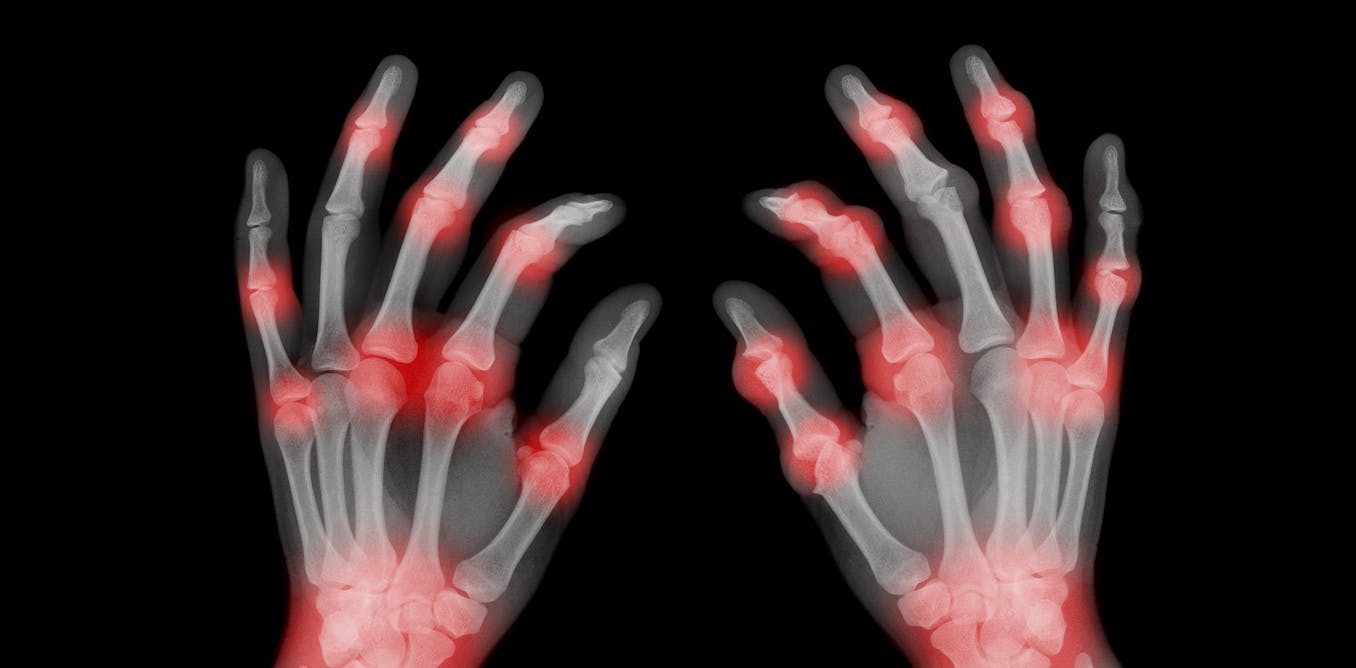Disir
Platinum Member
- Sep 30, 2011
- 28,003
- 9,611
- 910
We wanted to investigate what could trigger the formation of these antibodies. Specifically, we wondered if bacteria in the microbiome, a community of microorganisms that live in the intestines, might be the ones activating the immune response that leads to rheumatoid arthritis. Since microbes commonly live at the same sites as the antibodies driving rheumatoid arthritis, we hypothesized that these bacteria could be triggering the production of these antibodies. We reasoned that though these antibodies were meant to attack the bacteria, rheumatoid arthritis develops when they spread beyond the intestines to attack the joints.
First, we sought to identify the intestinal bacteria targeted by these antibodies. To do this, we exposed the bacteria in the feces of a subset of people at risk for developing rheumatoid arthritis to these antibodies, allowing us to isolate just the bacterial species that reacted and bound to the antibodies.
We found that one previously unknown species of bacteria was present in the intestines of around 20% of people who were either diagnosed with rheumatoid arthritis or produce the antibodies that cause the disease. As a member of the Cherokee Nation of Oklahoma, I suggested we name this species Subdoligranulum didolesgii (“didolesgii” means arthritis or rheumatism in Cherokee) as a nod to the contributions that other Indigenous scholars have made to science as well as the fact that rheumatoid arthritis affects Indigenous people at a higher rate than other populations.

 theconversation.com
theconversation.com
If antibiotics doesn't help then I wonder what would. I wonder if it would require like a dietary change. At least some type of progress is made.
First, we sought to identify the intestinal bacteria targeted by these antibodies. To do this, we exposed the bacteria in the feces of a subset of people at risk for developing rheumatoid arthritis to these antibodies, allowing us to isolate just the bacterial species that reacted and bound to the antibodies.
We found that one previously unknown species of bacteria was present in the intestines of around 20% of people who were either diagnosed with rheumatoid arthritis or produce the antibodies that cause the disease. As a member of the Cherokee Nation of Oklahoma, I suggested we name this species Subdoligranulum didolesgii (“didolesgii” means arthritis or rheumatism in Cherokee) as a nod to the contributions that other Indigenous scholars have made to science as well as the fact that rheumatoid arthritis affects Indigenous people at a higher rate than other populations.

Newly discovered species of bacteria in the microbiome may be a culprit behind rheumatoid arthritis
A new species of bacteria that doesn’t normally live in the gut may trigger an immune response so strong that it spreads to the joints.
 theconversation.com
theconversation.com
If antibiotics doesn't help then I wonder what would. I wonder if it would require like a dietary change. At least some type of progress is made.